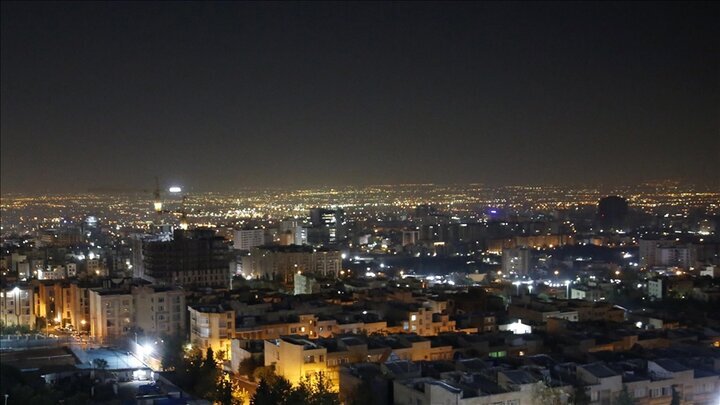Global condemnation mounts against Israeli strikes on Iran as Western nations remain silent

TEHRAN – Israel’s early Saturday airstrikes on Iran have sparked an immediate backlash from numerous countries worldwide, though Western nations have yet to issue any direct criticism.
The strikes, which Iran reports were mostly intercepted by its air defenses, targeted military sites in Tehran, Ilam and Khuzestan provinces.
In a statement, Iran’s Army confirmed that four of its soldiers lost their lives in the pre-dawn attacks.
On October 1, Iran responded to the Israeli assassination of Hamas political bureau chief Ismail Haniyeh, Hezbollah Secretary General Sayyed Hassan Nasrallah, and senior IRGC commander Abbas Nilforooshan by launching as many as 200 ballistic missiles toward the occupying regime’s military and intelligence bases all over the occupied Palestinian territories.
Dubbed Operation True Promise II, the retaliatory strike dealt a severe blow to the illegal regime all the more ruinous than its prequel in April, with Tel Aviv having so far declined to reveal the extent of loss it suffered despite vowing to respond on several occasions.
Saudi Arabia led the regional outcry, with its Foreign Ministry condemning the strikes as a violation of Iran’s sovereignty and international law. Riyadh urged international action to prevent further escalation in the region.
Several nations, including Malaysia, Syria, Jordan, and Lebanon, issued statements condemning the strikes as severe threats to regional security. Malaysia criticized the attack as undermining stability, while Jordan called it a “dangerous escalation.” Lebanon’s Foreign Ministry described it as a direct violation of Iran's sovereignty with implications for international security, calling on the United Nations to act.
The UAE, Kuwait, Qatar, and Oman echoed similar concerns. Qatar’s Foreign Ministry expressed worry over potential “serious repercussions” and called for restraint, while Oman denounced Israel's actions as a blatant breach of international law. The UAE expressed its deep concern over the continued escalation and its repercussions on security and stability in the region.
The Egyptian Foreign Ministry also announced that it follows with grave concern the dangerous escalation of tensions in West Asia, most recently the Israeli attack on Iran.
“We condemn all actions that threaten the security and stability of the region,” the Egyptian ministry added.
Neighboring Pakistan and Turkey also spoke out, with Pakistan’s Prime Minister condemning the strikes and urging peaceful dialogue, and Turkey framing Israel’s actions as a regional threat. Pakistan’s Prime Minister Muhammad Shehbaz Sharif stated on Saturday that Pakistan stands with Iran and its neighbors in their pursuit of peace. He also called on all parties involved to exercise restraint to prevent further escalation.
On his social media platform X, Shehbaz Sharif posted, “Deeply concerned by the recent act of Israeli aggression against Iran. Such actions threaten regional peace and stability and violate sovereignty and international law.”
Algeria and Iraq highlighted the international community’s silence, warning of the consequences of unchecked aggression by Israel.
Additionally, the Palestinian Islamic Resistance movement Hamas along with Yemeni Resistance movement Ansarullah strongly denounced the Zionist regime’s attack against the territorial integrity of the Islamic Republic of Iran.
In a statement, Hamas lauded Iran’s advanced air defense system’s readiness against the Israeli aggression, saying that Israel's aggression is a clear violation of Iranian sovereignty and a target for regional security.
“We emphasize our support for Iran against the aggression of the Zionist regime and appreciate the courageous stances of the Iranian nation and its leaders in supporting the Palestinian nation,” Hamas added.
The National Salvation Government of Yemen also criticized the Zionist regime's aggression against Iran, declaring its solidarity with the nation and government of Iran which have been targeted due to their positions in support of the Palestinian and Lebanese nations.
While much of West Asia condemned Israel’s actions, Western countries remained largely silent on the incident, with France merely urging restraint and refraining from directly addressing the Israeli aggression.
British Prime Minister Keir Starmer also called on Iran not to respond to a wave of Israeli strikes, urging restraint on all sides.
Repeating his previous claim about what Keir Starmer called Israel's right to defend itself against Iran's attack, he said, “I'm equally clear that we need to avoid further regional escalation and urge all sides to show restraint. Iran should not respond,” he said, speaking at a press conference in Samoa, where he has been attending a Commonwealth Heads of Government Meeting, Reuters reported.
Leave a Comment